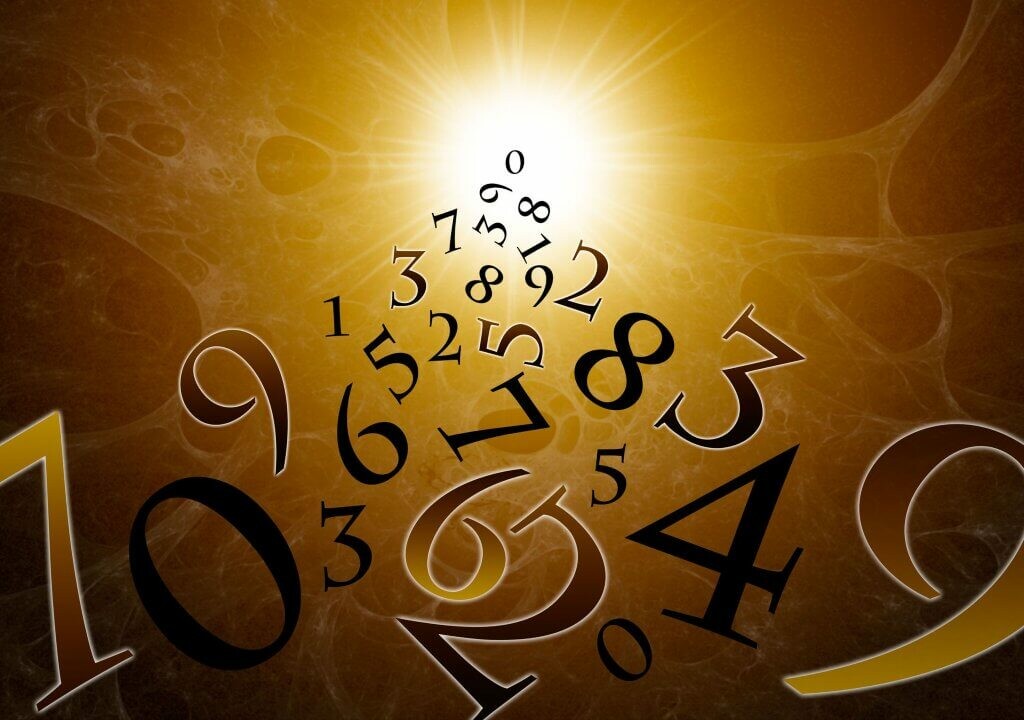Numerology offers an ancient approach that connects numbers with universal principles, reflected in the trinity and the life mission of each person. Its analysis of the year and day of birth suggests energies that can drive projects and changes. Through various schools of thought, this discipline highlights how appropriate colors and moments promote growth and balance.
How Numerology and Vedic Philosophy Reveal Your Life Mission
Numbers represent universal principles that exert a significant influence from the birth of each individual to their major life decisions. Although at first glance it may seem like a mere system for calculating quantities, this ancestral approach emphasizes the symbolic and archetypal power of numbers.
The concept of the trinity, present in various philosophical and religious traditions, is an excellent example for understanding numerical symbolism.
The Father, or the creative principle, is associated with one; the Son, or the sustaining principle, with two; and the Holy Spirit, as the transforming agent, with three. Going one step further, when these three forces infuse vitality into matter, we reach four, which symbolizes manifested creation.
The sum of these initial four numbers (1+2+3+4=10) forms the basis of the decimal system.
This formula underscores how numerology serves as a conceptual bridge between the metaphysical and the practical, reinforcing the idea that numbers transcend their utility in pure mathematics to occupy a central place in cosmological reflections. Ancient civilizations identified in this sum a synthesis of the totality of existence, supporting the thesis that each number awakens specific energies that impact the course of history.
The Role of the Birth Year in Numerology
Generally speaking, people born in the 20th century—when dates begin with 19—would be marked by the numbers 1 and 9, associated with solar energy and Martian influence, respectively. These combined forces have been interpreted as drivers of dynamism, conflict, and scientific progress, as evidenced by the great advances and war tensions of the last century.
In the 21st century, however, years begin with 20, a number of lunar nature that some experts consider a promoter of sensitivity, empathy, and introspective abilities.
This energetic charge reveals numerology’s ability to adapt to changing historical realities. Consequently, the analysis of the birth year becomes relevant in outlining an individual’s life mission.
The Life Mission and the Destiny Number
The figure derived from adding the birth year (excluding the 19 or 20 of the century), the month, and the day is known as the “destiny” number.
This value encapsulates the person’s talents, innate qualities, and the challenges they will face.
For example, if someone was born on January 29, 1940, the calculation would be 40 (year) + 1 (month) + 29 (day) = 70. The digits are then reduced: 7 + 0 = 7.
This number is linked to the forces of Neptune and the Moon, suggesting a predisposition to intellectual life, curiosity about mysteries, and a remarkable inclination toward fields such as psychology or astrology.
Additionally, numerology recommends paying special attention to days whose numbers coincide with the resulting root number (e.g., 2, 11, 20, or 29 for someone influenced by 2). This way, individuals can enhance their goals in harmony with the energies that, according to numerology, align with their destiny.
Everyday Applications and Favorable Colors
In practice, numerology proposes various strategies to channel the influences of each number for personal growth. Besides identifying favorable days, it suggests color palettes that enhance the vibration of the number defining one’s destiny.
In the previous example, green, white, and cream tones would reinforce creativity and communication skills. These chromatic associations aim to balance energies and, in many cases, reduce internal tensions or boost self-confidence. The connection between numerology and Vedic philosophy extends beyond the trinity.
In this tradition, emphasis is placed on the notion that the individual embodies a microcosm reflecting cosmic order. Consequently, numbers are seen as expressions of divine forces acting simultaneously on individual and universal planes.
Similarly, numerological analysis in Vedic philosophy considers the interdependence between planets, constellations, and numbers.
All of this integrates to offer a holistic vision of the human being, emphasizing harmony and connection with the environment. Although each culture interprets numbers differently, a commonality can be observed: the recognition of their immense symbolic power and their capacity to guide daily life.
Future Perspectives
Numerology is neither a hermetic system nor limited to superstitions. On the contrary, its evolution throughout history demonstrates a constant search for patterns and universal meanings.
Today, astrologers and numerologists collaborate on statistical studies to correlate birth dates with personality traits and significant events, aiming to establish a more rigorous approach.
The use of numbers to understand reality is not foreign to science. In fact, the decimal basis of our calculations has its first four roots in the sum of 1+2+3+4, and the philosophical implications of this operation have intrigued thinkers from ancient Greece to the present.
In summary, numerology reaffirms the idea that life is intimately tied to numerical vibrations that, when well understood, serve as tools for personal and collective growth.
Conclusion
Each number connects the individual to immaterial forces that seemed forgotten in modernity. However, the growing interest in the symbolic and spiritual aspects of existence has brought numerology back to prominence.
The union of the science of numbers and inner exploration provides fertile ground for those seeking greater clarity and purpose in their life journey.
Ultimately, like any interpretive system, its relevance depends largely on each person’s faith and openness. Yet, by contemplating numbers as representations of cosmic principles, we are presented with an integrated perspective where life ceases to be a collection of isolated events and transforms into an experience governed by ancient forces that aspire to connect us with the very essence of the universe.





